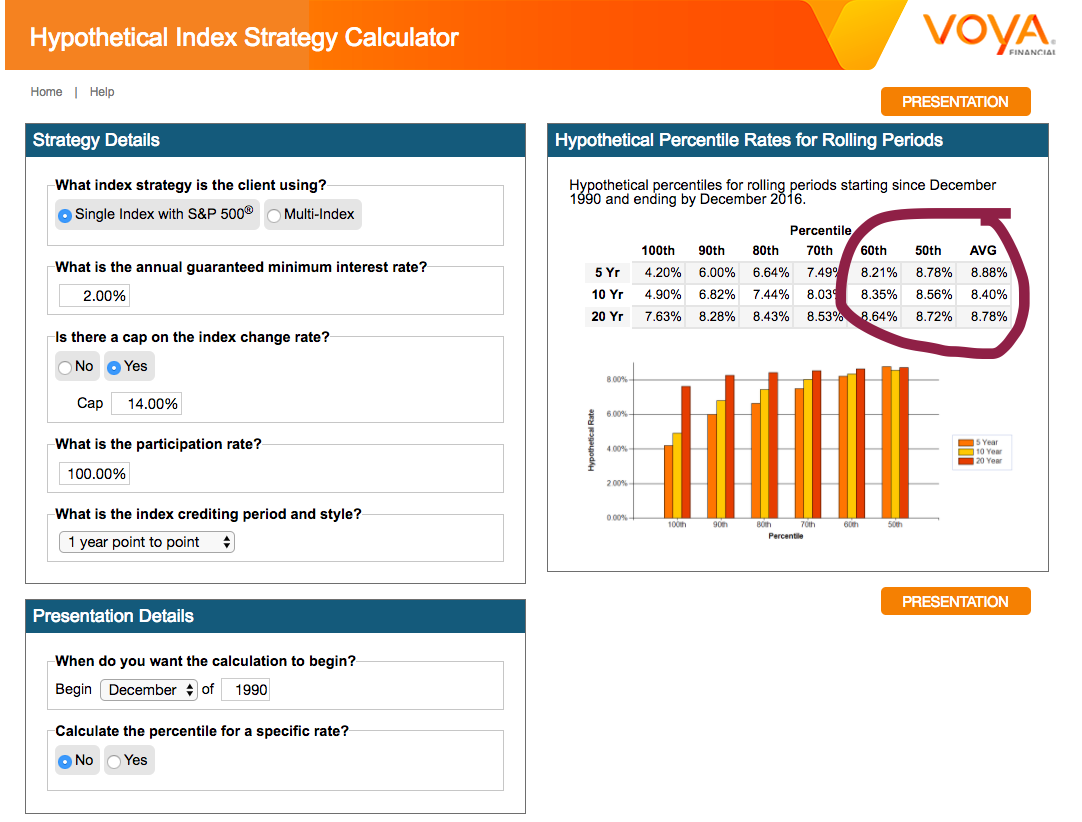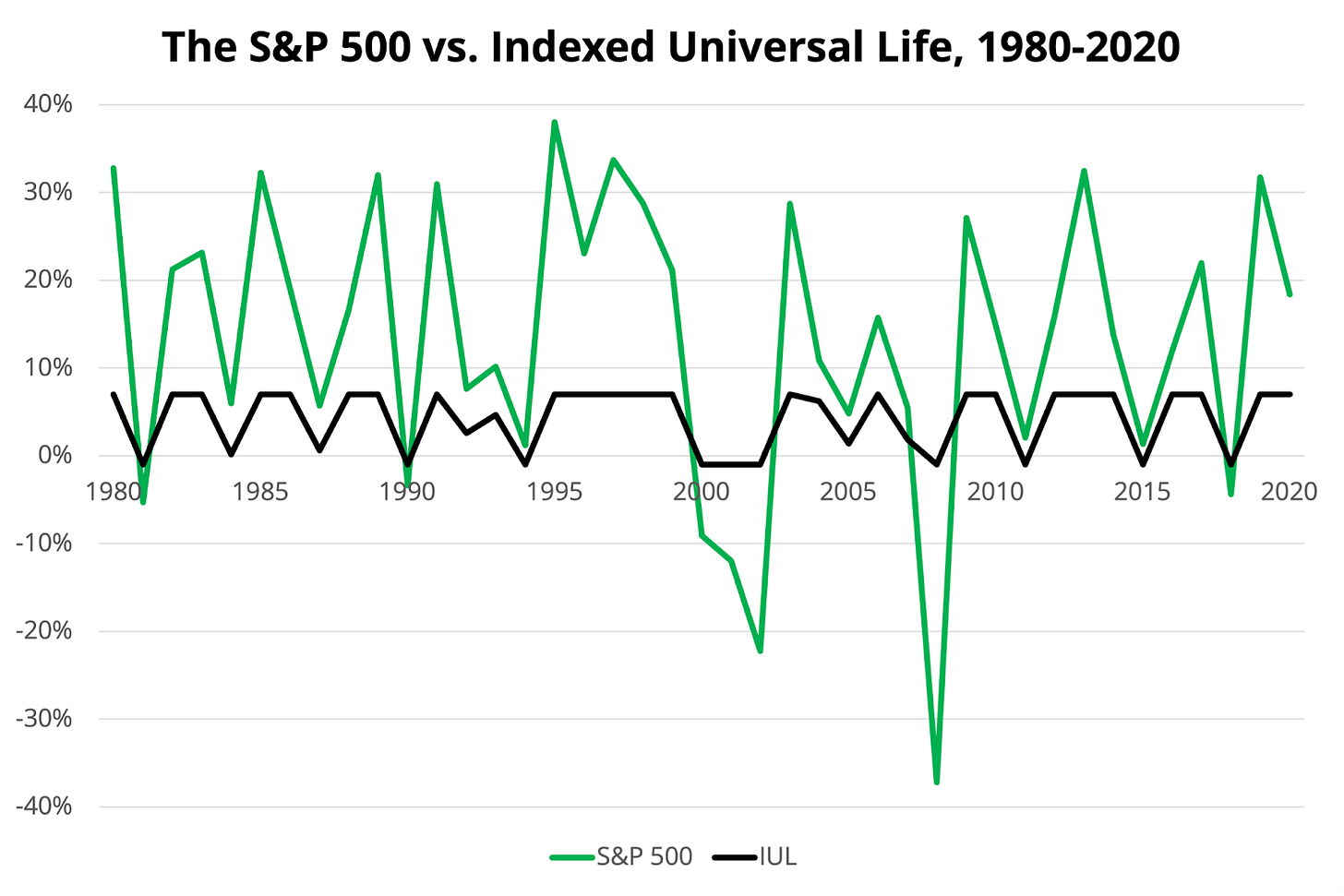All Categories
Featured
Table of Contents
1), commonly in an attempt to defeat their category standards. This is a straw guy debate, and one IUL individuals enjoy to make. Do they compare the IUL to something like the Vanguard Total Securities Market Fund Admiral Show to no lots, an expenditure proportion (EMERGENCY ROOM) of 5 basis factors, a turn over ratio of 4.3%, and a phenomenal tax-efficient record of distributions? No, they compare it to some horrible actively handled fund with an 8% tons, a 2% EMERGENCY ROOM, an 80% turnover proportion, and a horrible document of temporary capital gain distributions.
Common funds usually make annual taxable distributions to fund proprietors, also when the worth of their fund has actually gone down in worth. Mutual funds not just need earnings reporting (and the resulting annual taxes) when the mutual fund is rising in worth, yet can additionally enforce revenue taxes in a year when the fund has gone down in worth.
That's not just how common funds work. You can tax-manage the fund, collecting losses and gains in order to reduce taxed circulations to the financiers, yet that isn't in some way going to change the reported return of the fund. Only Bernie Madoff kinds can do that. IULs avoid myriad tax catches. The possession of shared funds might need the shared fund owner to pay projected tax obligations.

IULs are very easy to position to ensure that, at the proprietor's fatality, the beneficiary is not subject to either revenue or inheritance tax. The exact same tax obligation reduction strategies do not function almost too with mutual funds. There are countless, often expensive, tax obligation catches connected with the moment purchasing and marketing of shared fund shares, catches that do not use to indexed life insurance policy.
Possibilities aren't really high that you're mosting likely to be subject to the AMT as a result of your mutual fund distributions if you aren't without them. The rest of this one is half-truths at ideal. While it is true that there is no earnings tax due to your successors when they acquire the earnings of your IUL plan, it is additionally real that there is no earnings tax obligation due to your heirs when they acquire a mutual fund in a taxed account from you.
Indexed Whole Life Policy
There are much better ways to stay clear of estate tax concerns than purchasing investments with reduced returns. Mutual funds may cause income taxation of Social Security advantages.

The development within the IUL is tax-deferred and may be taken as tax complimentary income via fundings. The policy proprietor (vs. the common fund manager) is in control of his or her reportable revenue, hence allowing them to reduce or perhaps remove the taxes of their Social Security advantages. This one is excellent.
Here's one more marginal issue. It holds true if you acquire a mutual fund for state $10 per share simply before the circulation date, and it distributes a $0.50 circulation, you are then mosting likely to owe tax obligations (probably 7-10 cents per share) in spite of the truth that you have not yet had any type of gains.
In the end, it's really about the after-tax return, not how much you pay in tax obligations. You're additionally possibly going to have more money after paying those taxes. The record-keeping needs for owning mutual funds are considerably more complex.
With an IUL, one's records are maintained by the insurer, duplicates of annual statements are sent by mail to the proprietor, and circulations (if any) are totaled and reported at year end. This one is also sort of silly. Naturally you should keep your tax obligation records in case of an audit.
Financial Foundation Iul
Hardly a factor to get life insurance policy. Common funds are commonly part of a decedent's probated estate.
On top of that, they undergo the delays and expenses of probate. The proceeds of the IUL plan, on the various other hand, is constantly a non-probate distribution that passes beyond probate directly to one's named beneficiaries, and is therefore exempt to one's posthumous lenders, undesirable public disclosure, or comparable delays and expenses.
We covered this under # 7, yet simply to evaluate, if you have a taxable common fund account, you need to place it in a revocable count on (or even simpler, use the Transfer on Death designation) in order to avoid probate. Medicaid incompetency and lifetime income. An IUL can offer their proprietors with a stream of income for their whole lifetime, no matter how much time they live.

This is advantageous when organizing one's events, and converting possessions to revenue prior to an assisted living facility confinement. Common funds can not be converted in a similar fashion, and are generally considered countable Medicaid possessions. This is another foolish one promoting that poor people (you understand, the ones who require Medicaid, a federal government program for the inadequate, to spend for their retirement home) must utilize IUL instead of mutual funds.
Iul Retirement
And life insurance looks dreadful when compared rather versus a pension. Second, individuals that have money to get IUL over and beyond their pension are going to have to be terrible at handling cash in order to ever get Medicaid to pay for their retirement home costs.
Persistent and terminal health problem cyclist. All policies will permit an owner's simple access to cash money from their plan, often forgoing any kind of abandonment penalties when such people suffer a significant illness, require at-home care, or come to be constrained to a retirement home. Common funds do not offer a similar waiver when contingent deferred sales charges still put on a mutual fund account whose owner needs to sell some shares to money the prices of such a remain.
Indexed Universal Life Pros And Cons
You obtain to pay more for that benefit (rider) with an insurance coverage plan. Indexed global life insurance coverage provides fatality benefits to the beneficiaries of the IUL owners, and neither the proprietor nor the recipient can ever lose money due to a down market.
I certainly do not need one after I get to financial self-reliance. Do I desire one? On standard, a purchaser of life insurance policy pays for the true cost of the life insurance coverage advantage, plus the expenses of the plan, plus the profits of the insurance policy company.
Survivorship Life Insurance Quote
I'm not completely certain why Mr. Morais included the entire "you can not shed cash" once more below as it was covered rather well in # 1. He simply intended to repeat the ideal marketing factor for these points I mean. Once more, you don't shed small dollars, yet you can lose real dollars, in addition to face severe chance price due to low returns.

An indexed universal life insurance coverage policy proprietor might trade their plan for a completely different policy without causing earnings taxes. A common fund proprietor can stagnate funds from one common fund firm to one more without selling his shares at the previous (thus setting off a taxed event), and redeeming new shares at the latter, typically based on sales charges at both.
While it is real that you can trade one insurance plan for an additional, the reason that people do this is that the initial one is such an awful plan that even after buying a new one and experiencing the early, negative return years, you'll still come out ahead. If they were sold the ideal plan the initial time, they shouldn't have any need to ever trade it and undergo the very early, negative return years once again.
Latest Posts
Universal Life Insurance Retirement
Universal Life Insurance Broker
Guaranteed Universal Life Insurance Companies